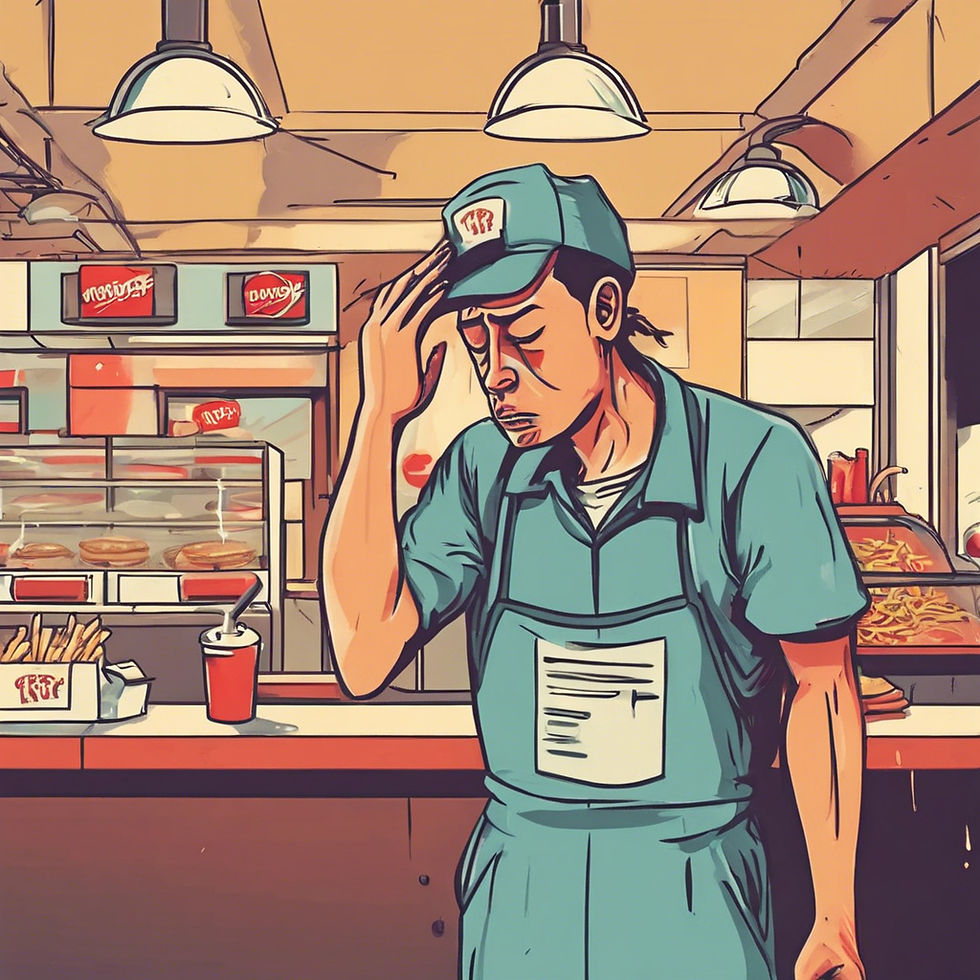One NZ Workers & the Fight to Work From Home
- Unite
- Mar 1, 2024
- 3 min read
Updated: Mar 27, 2024

Call centre workers at One NZ (formerly Vodafone NZ) are currently on strike as they try to negotiate a new collective agreement.
A key demand these workers are making is the right to work from home. Like many businesses in the wake of the Covid 19 lockdowns, One NZ had many of its call centre workers in successful working from home arrangements, which kept up productivity while also allowing workers the flexibility that working from home allowed. But as a new collective agreement began to be negotiated it seemed that One NZ changed its stance, and has demanded in its offer that all staff now work in the office 3 days a week. No reasons or justification were provided on why this change was needed, despite the experience of workers who had successfully worked from home 5 days a week during the pandemic and knew this could work.. Sam Burnside-Woods, the Unite union organiser leading the negotiations described this “expectation that workers should just forget that the job can be successfully done at home… is ridiculous.” This issue has thus far proved the key sticking point in negotiations. Union members have taken a variety of actions, including working from home before and after the strike to show their determination that this issue be addressed.
the “expectation that workers should just forget that the job can be successfully done at home… is ridiculous.”
Working from home is not the only issue causing problems in negotiations. Despite making significant profits year on year, One NZ has a $20 million capital expenditure shortfall resulting from its buyout by Infratil in 2019 and faces expectations from shareholders about how this shortfall should be addressed. Burnside-Woods says that “expecting workers to come up with the difference when this shortfall has been largely engineered by corporate leadership and bankrolled by a venture capitalist company feels disingenuous”.
The union has five core claims in its negotiations:
10% pay claim, following below inflation wage rises in previous years
Extension to coverage of the collective contract to include more workers
Long standing service leave - extra leave week after 5, 10, and 15 years working for the company
Evening and weekend rates (workers are on a 7-day rotating roster, working anywhere from 7am to 9pm)
Current and successful Working from home arrangements to be continued.
One NZ has come back with a measly offer of 1.56-3.51% rate increases (after some roles have been disestablished) which are well below inflation, and a 5% rate rise for starting workers. Below inflation pay offers for workers are in effect a pay cut in real terms, and Unite union members are determined that they should not be going backwards while the business they work in continues to make substantial profits.
“expecting workers to come up with the difference when this shortfall has been largely engineered by corporate leadership and bankrolled by a venture capitalist company feels disingenuous”
In response to the other union claims, One NZ has refused to budge on long service leave, weekend rates, extension to coverage and working from home, in an approach Burnside-Woods describes as “ideological”.
For many of the workers on strike, this is a difficult situation - the company has been aggressive in its negotiations and reaction to the strike action, and many of the workers have never previously been involved in industrial action. While working from home has real advantages for workers, it also poses particular challenges for union organising as a more fragmented workforce can be more difficult to communicate with and the solidarity and confidence that often emerge from mass union meetings and face-to-face worker interactions are more difficult to facilitate.
Solidarity from other unions and the general public are key to creating a positive outcome for One NZ workers - Burnside-Woods notes that with the One NZ brand being relatively new the company will be extremely sensitive to it being “tarnished” if they are seen to be anti-worker, and encourages the public and One NZ customers to send online and in-person feedback to the company supporting the striking workers.
Article Updated 27/3/24. Note that some roles have now been disestablished, so ongoing negotiations will reflect that.





Comments